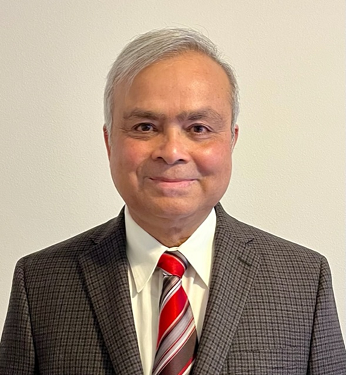Please join the South Texas Section for our monthly workshop and dinner meeting at DoubleTree by Hilton Hotel Houston Intercontinental Airport at 15747 John F Kennedy Blvd, Houston, TX 77032. The keynote for the STS-AIChE dinner will be delivered by Dr. Lisa Biswal.
-
5:30PM - 6:30PM Pre-Dinner Workshop (1 PDH)
-
6:30PM - 6:45PM Social Networking Time
-
6:45PM - 7:30PM Dinner & Announcements
-
7:30PM - 8:30PM Keynote Presentation by Dr. Lisa Biswal (1 PDH)
Workshop Registration
-
In-Person Registration: Walk-in (no pre-registration required)
-
Virtual Attendance Registration: CLICK HERE!
The workshop is free to attend.
AIChE Dinner Registration (1 PDH Available)
-
In-Person Registration: CLICK HERE!
-
Virtual Attendance Registration: CLICK HERE!
Dinner Registration Fees
|
Registration Fees |
Early Bird Registration (Before August 7th) |
Regular Registration |
Late Registration (Sept. 1st and After) |
|
Forum Only |
$0 |
$0 |
$0 |
|
STS member |
$45 |
$50 |
$60 |
|
Non-member |
$50 |
$60 |
$70 |
|
STS YP member |
$40 |
$45 |
$55 |
|
STS student member |
$35 |
$40 |
$50 |
Keynote Presentation
Engineering Inorganic-Organic Composites for Lithium-Ion Batteries
Abstract
Next-generation electrode materials for high-capacity lithium-ion batteries (LiBs) feature a composite design in which the active ion storage component is embedded in a flexible polymer matrix to accommodate large volume expansions that occur in the active material as the battery is charged. The performance of these electrodes often is hampered by a lack of stability at the interface between the Si active material and the polymer binder, where degradation of the interface compromises electrical contacts and ion transport channels. Degradation of the interface separating these components compromises the structural integrity of the electrode, causing both the loss of electrical contacts and blockages in ion transport channels. Interfacial engineering is essential for developing rational design rules for optimizing these materials. Superior performance is obtained when Si is combined with a pyrolyzed polyacrylonitrile polymer binder (PPAN), which can achieve charge capacities of ~1000 mAhg-1 at standard charge-rates with stable cycle lifetimes of ~500-1000 cycles. The extended cycle life and high C-rate electrochemical performance has set this porous Si apart from other Si embodiments in batteries, yet the underlying causes for the superior performance of PPAN are not yet understood. Motivated by these results, I will discuss the key interactions governing the polymer/silicon interfaces to better understand how the structure of the interface is connected to performance.
About the Keynote Speaker

Sibani Lisa Biswal, PhD
Senior Associate Dean of Engineering, Rice University
Dr. Sibani Lisa Biswal is the William M. McCardell Professor in the Department of Chemical and Biomolecular Engineering and Senior Associate Dean in the George R. Brown School of Engineering at Rice University. She leads the Soft Matter Engineering Laboratory, where she aims to connect a fundamental understanding of colloidal and interfacial forces governing soft matter systems to identify new insights and ideas towards engineering new solutions for a variety of critical technological problems. Prior to Rice, she was a postdoctoral fellow at UC Berkeley. She received her B.S in chemical engineering from Caltech (1999) and a Ph.D. in chemical engineering from Stanford University (2004). She is the recipient of an ONR Young Investigator Award and a National Science Foundation CAREER award. She has also received the George R. Brown Award for Superior Teaching, the Rice Alumni Professional Progress Award, and the South Texas Section AICHE Best Applied Paper Award.
Pre-Dinner Workshop (1 PDH Available)
Topic
Opportunities in Leveraging Earlier Technologies and Developing New Technologies to Produce Future Renewable Fuels
Abstract
The energy mixture presently used to fuel the transport sector is predominantly of fossil origin and leads to significant net carbon dioxide emissions. As a result, there is an urgent need to transition the existing energy mixture into one which consists of renewable sources and has minimal fossil origin. After giving a brief overview of the history of previous energy transitions and the vast amount of knowledge generated while working through these transitions, this talk will focus on future renewable fuels proposed for the transport sector and the technologies required to produce these renewable fuels. A summary of examples where knowledge gained during earlier transitions can be leveraged and where new technologies need to be developed will be reviewed. Enormous opportunities exist for chemical engineers in improving earlier technologies as well as developing new technologies for successfully achieving the goals of future renewable fuels production.
About the Speaker

Shyamal Bej
Senior Principal Science Expert – Process Development, Shell
Shyamal Bej is a Senior Principal Science Expert in the Process Development Group of Shell and currently supporting several projects related to renewable fuels, waste plastic to chemicals and carbon dioxide abatement. Before joining Shell in 2012, he worked for the Indian Institute of Petroleum, the University of Michigan, ConocoPhillips and BP in the areas of petroleum refining, petrochemicals and specialty chemicals. Shyamal has a total experience of about 32 years in fundamentals of catalysis and reaction engineering, catalyst and process development, technology due diligence and derisking, support to commercialization and trouble shooting in commercial plants. He was heavily involved in developing, commercializing and improving several technologies. Shyamal received his PhD in Chemical Engineering from the Indian Institute of Technology, Kanpur, India and did his postdoctoral research in Catalysis from the University of Michigan, Ann Arbor, USA.
- Log in to post comments
